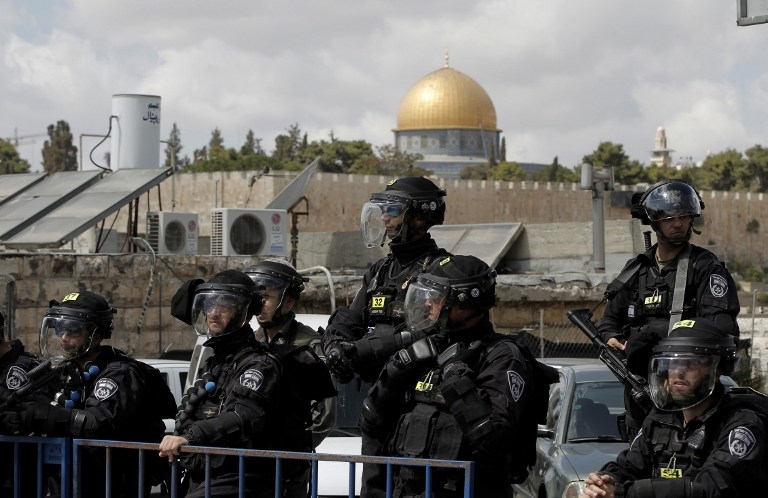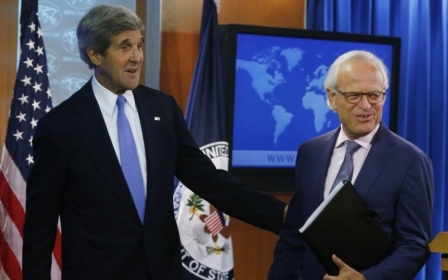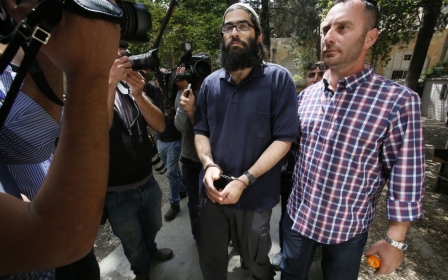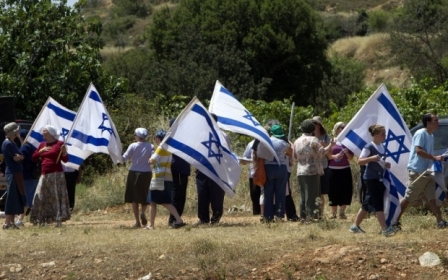Clashes in Old City's shadow as Jewish settlers move into Palestinian homes

Israeli police guarded Jewish settlers on Tuesday as they moved into 25 apartments in Arab east Jerusalem, a politically delicate and predominantly Palestinian neighbourhood near the flashpoint of Al-Aqsa mosque, residents and Palestinian leaders said.
The incident led to clashes between Arab residents and Jewish settlers in the Silwan neighbourhood, which is right outside Jerusalem's Old City.
It follows Israeli Prime Minister Benjamin Netanyahu and Palestinian President Mahmoud Abbas traded inflammatory accusations at the UN General Assembly in New York, making the prospects for peace look even bleaker.
Mohammed al-Khayat, whose family owns three apartments in one Silwan building, told AFP that settlers had broken the locks on empty properties and then changed them.
Elad, a hardline settler organisation that seeks to increase Jewish settlement in Israeli-annexed east Jerusalem, said it has purchased the homes in Silwan.
But Mohammed Dahla, a lawyer representing the Palestinian owners, said his clients denied selling them to the group.
A spokesman for Abbas, quoted by news agency Wafa, slammed "the occupation by settlers of buildings in Silwan close to the Al-Aqsa mosque."
The neighbourhood, Silwan - just south of the Old City in territory Israel captured in the 1967 war then annexed — is home to around 50,000 Palestinians and a few hundred hardcore settlers. Often the scene of violence between the two sides, it is also the site of archaeological ruins believed to be the City of David, a Jewish historical landmark.
Seething tensions in the local area have underscored deepening divisions in a city that Israel claims as its "indivisible capital".
Palestinians accuse Israel of waging an aggressive campaign to "Judaize" the city with the aim of effacing its Arab and Islamic identity and ultimately driving out its Palestinian inhabitants.
Senior Palestinian negotiator Saeb Erakat blamed Netanyahu for encouraging illegal Israeli settlement in Palestinian areas.
"They (settlers) translated Netanyahu's speech into the act of taking over seven buildings in occupied east Jerusalem," he told AFP.
That was a reference to Netanyahu telling the General Assembly on Monday that settlers were "not occupiers in the Land of Israel," invoking a "singular attachment to this land for over 3,000 years."
Later Tuesday, Housing Minister Uri Ariel visited the neighbourhood in solidarity with the settlers, Channel 10 television reported.
In a highly symbolic act, Ariel, a member of pro-settlement Jewish Home party, attached a mezuzah, or small scroll of biblical verses inside a case, to the doorpost of one dwelling. Mezuzah's are traditionally affixed by Jews on moving in to a new home.
The settlement issue has derailed round after round of peace talks, most recently in April.
In his UN speech, Netanyahu also accused Abbas of slander over claims he made in his UN speech last Friday that Israel had waged a "war of genocide" in its 52-day military campaign against fighters in the Gaza Strip, which killed nearly 2,200 Palestinians.
More than 70 people were killed on the Israeli side.
Middle East Eye propose une couverture et une analyse indépendantes et incomparables du Moyen-Orient, de l’Afrique du Nord et d’autres régions du monde. Pour en savoir plus sur la reprise de ce contenu et les frais qui s’appliquent, veuillez remplir ce formulaire [en anglais]. Pour en savoir plus sur MEE, cliquez ici [en anglais].




